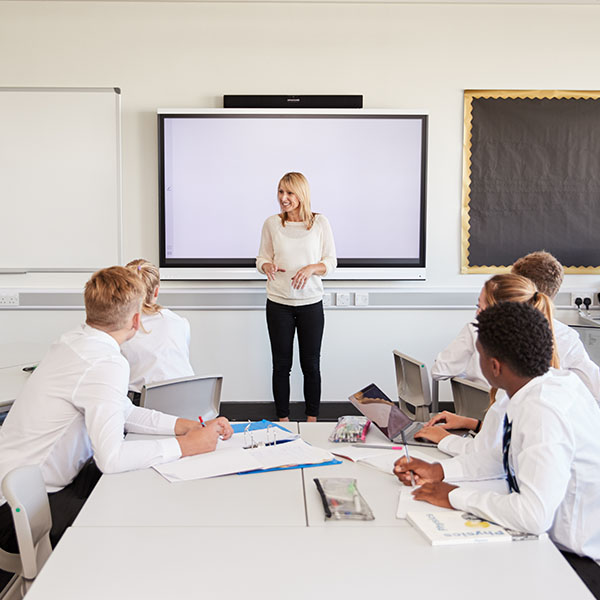It isn’t uncommon for students to struggle in their first few weeks back at school - often, this is because they re experiencing a summer learning loss. This phenomenon consists in students losing academic skills and knowledge as a result of a long summer break - which might be even more pronounced this year due to school closures in the past few months.
However, this isn’t inevitable. By taking some proactive steps and getting parents involved, summer learning loss can be minimised. We’ve taken a look at the latest research and come up with some helpful tips for teachers and parents to combat these effects and make the transition into the next school year as easy as possible for students.
What Does the Research Say?
A recent review of 13 studies which looked at over 50,000 students suggested that they experience an average summer learning loss estimated to equal about one month of the academic year. The effect of the summer holidays is typically more detrimental for Maths, which is possibly due to the limited availability of math practice outside of formal school settings.
Who Does Summer Learning Loss Affect the Most?
Studies indicate a link between socioeconomic status and level of loss during the summer holidays. It was found that after the summer holidays, middle class students showed no change in their reading and language abilities, whilst students of a lower socio-economic status saw their abilities diminish. This created a gap between these students that was equivalent to three months.
But what causes these differences? Generally speaking, these differences occurred because those of a lower socioeconomic status may have limited access to learning related activities during the holidays in comparison to those who have a higher socioeconomic status. This in turn can lead to these students being left behind and therefore struggle when they return to school. Eventually, this means that these students will have a smaller chance to be successful. So, what can schools and parents do to help these students?
What Can Schools Do to Counterbalance Summer Learning Loss?
Offer Study Support
Returning to school after the summer break can be daunting and struggling students may require some extra attention. Research indicates that study support can be beneficial to students at any academic level as it improves their skills and gives them opportunities to develop particular interests. Furthermore, it allows pupils from disadvantaged backgrounds to study in a safe environment, and gives them access to resources that may not be readily available to them at home.
Efficient Goal-Setting
An invaluable measure to ensure that students stay focused is goal setting. Setting specific goals for each student, e.g. to read a certain number of books within a month, will create positive habits that students can implement year-round. This can help mitigate the negative effects of the summer learning loss. Encouraging students to keep an end goal in mind will motivate them to work towards a greater goal, whilst instilling a growth mindset.
To set efficient goals, we suggest that you:
- Set both bigger and smaller goals
- Make the goals challenging…
- … but be wary of perfectionism
- Find a “why” for the goals
- Set goals for skills you want to see improve
- Plan for possible obstacles (and how to overcome them)
- Co-create the goals with your students for accountability
Find out more about these strategies on our blog How to Do Goal Setting Right, and download our free goal-setting printable worksheets to help guide students through the process.
Get Parents Involved
Teachers can take a proactive approach in keeping parents involved in their child’s learning by sending weekly emails updating the parents on what their child is learning at that moment, and providing consistent feedback on areas of strength and improvement. Parental involvement is crucial in the process of regaining the academic skills and knowledge lost during the summer.
What Can Parents Do?
Encourage Educational Trips
Even when a child returns to school, the responsibility for overcoming the summer learning loss should not solely be handed back to the teacher. Instead, parents should be looking to offer their child a home environment that fosters learning. This means giving children an alternative to spending large amounts of time watching the TV or playing video games by taking them on fun but educational trips after school or at the weekend.
For example, one particular study found that taking children to a museum not only improves their knowledge but also their ability to solve problems and enhances their creativity. Many virtual tours are available on the internet, allowing students to maintain social distancing while visiting places such as the Natural History Museum, Stonehenge, or even the NASA Mission Operations room - and more.
Read with your Child at Home
Another way in which parents can help their child overcome the summer learning loss is by encouraging their child to read either with them or alone at home. Reading does not to have to be time consuming to make a difference, as research conducted by the National Literacy Trust found that “reading for just 10 minutes a day is enough to have an impact on a child’s learning”.
Final Thoughts
Although the summer learning loss is to some extent unpreventable, there are steps that both teachers and parents can take to ensure that the impact of this phenomenon is reduced. Students at every academic level should be given activities that they can engage with at the start of the school year, and those who are struggling should be offered extra support to ensure that they don’t fall behind.







